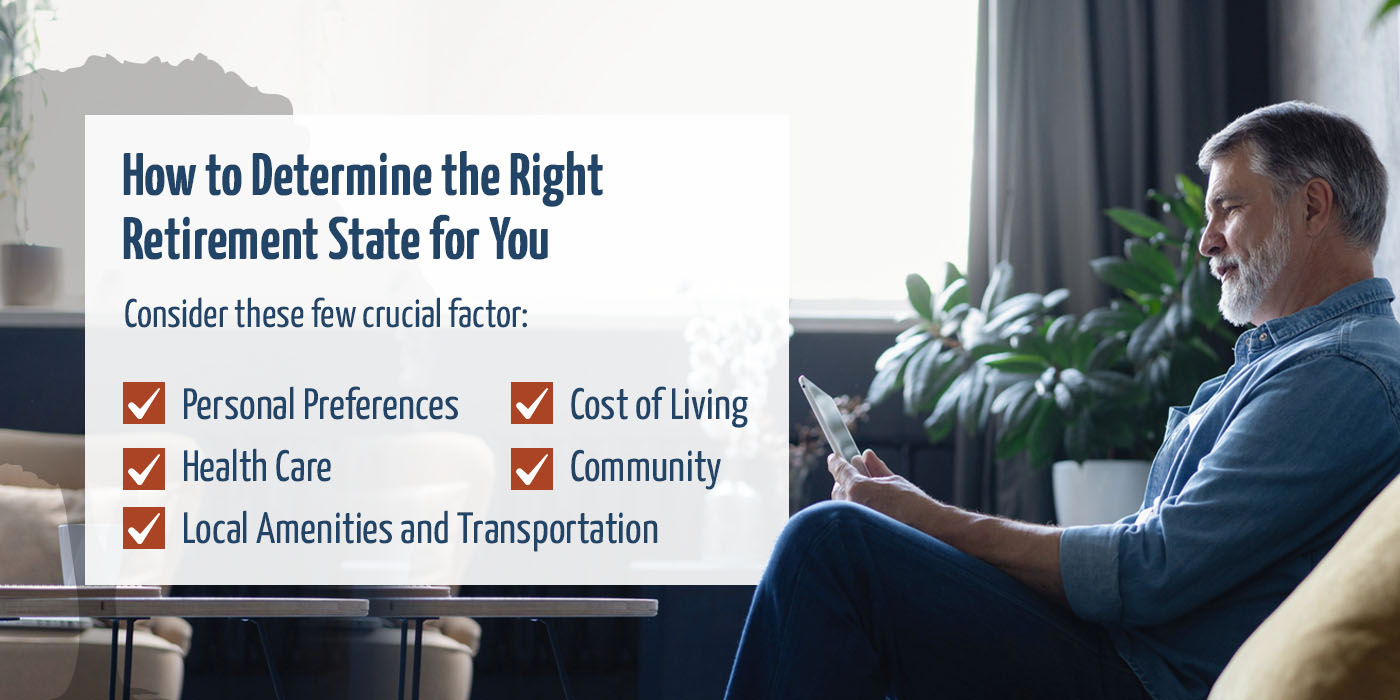Research shows that Pennsylvania is one of the best states to retire in the country. But picking a new place to call home will take more than one article. This is a significant decision. If you get it right, this could be the best golden years of your life.
We understand the weight of this decision, so we’ve decided to help make the process a little easier for you by giving you more clarity on Pennsylvania. What makes it special? What does it offer? Most importantly, is Pennsylvania a good place to retire for you? By the end of this article, we will have answered all these questions and more, and we hope you will have the information you need to make the best decision for you.
Why Is Pennsylvania a Good Place to Retire?
There are many advantages to choosing to retire in Pennsylvania. Here are some of the top benefits.
1. It’s Tax-Friendly to Retirees
One of the biggest advantages to choosing Pennsylvania as your retirement state is its tax-friendliness toward retirees. Most states tax your income regardless of its source — Social Security, 401(k), pension and individual retirement accounts (IRAs). However, Pennsylvania is one of the 17 states that don’t tax pension income. It also does not tax Social Security income or distributions from retirement accounts.
Pennsylvania has a low flat tax rate of 3.07% on income from other sources. All this means that, while you cannot avoid federal income taxes, you may be able to lower your tax obligations by living in Pennsylvania, which could mean saving thousands of dollars.
2. It’s More Affordable
What would you do with a little extra income every month? Would you put it toward your health care, travel more or finally pick up that hobby you’ve been interested in for years? Financial obligations sometimes restrict us from pursuing many interests, so living in a generally more affordable state can be great for your golden years.
The cost of living in Pennsylvania is 5.4% lower than the national average. This means your housing, food, health care, transportation and all other necessities will generally be lower.
3. It’s Perfectly Located on the East Coast
If you plan to travel and explore exciting neighboring states, living in Pennsylvania can give you easy access to them. Baltimore, New York City, Philadelphia and Atlantic City are just a few examples of major cities you can reach in just a few hours.
If you’re interested in slightly longer trips, you might enjoy a trip to Niagara Falls, the famous waterfall at the boundary of the United States and Canada. These falls are also within comfortable flying or driving distance from Pennsylvania.
4. There’s Lots to Explore Locally
If you’re more interested in daily trips or excursions, you will have an abundance of places to explore in Pennsylvania, such as:
- The state parks: These provide ample opportunities for fishing, hiking or simply enjoying nature’s beauty.
- Independence Hall and Liberty Bell: If you’re a history fan, you will love exploring these historic sites where America’s story began.
- The town of Hershey: This famous sweet place can be the ideal family outing, involving chocolate tastings and tours of making treats, an amusement park and a wonderful theater.
- Museums: If you’re an art lover, you may enjoy a trip to the Philadelphia Museum of Art.
5. It Gives You Access to the Best Health Care
Finding affordable and quality health care is critical, especially in your golden years. This balance isn’t always easy, but there’s good news for Pennsylvania residents. Pennsylvania was ranked as the 13th best state to receive health care. Another study concluded that Pennsylvania has one of the best health care systems in the country. These studies analyzed cost, easy access and overall health care quality.
How to Determine the Right Retirement State for You
Before deciding on a state for retirement, consider a few crucial factors that can make or break your experience.
Personal Preferences
Do you enjoy a quiet, conservative lifestyle? Or would you prefer a state with many outdoor activities to explore? Some states may give you quick beach access, while others offer some of the best arts and entertainment in the country. Understanding your individual needs and preferences will help you find the state that best suits you.
Health Care
Access to good health care is vital at any age. Sometimes the state you live in may impact the quality of health care you can receive. To make your stay more enjoyable, you want to consider a state that offers quality health care at an affordable price. You must also be able to access this health care easily.
Local Amenities and Transportation
Once you’re a retiree, it’s time to enjoy your favorite hobbies or develop new ones you’ve always wanted to try. Whether it’s midday trips to the museum, perusing art galleries, golfing or fishing, look for an area that will give you easy access to your most loved activities.
You’ll also need to consider proximity to these amenities. Do you need to drive long distances to just enjoy a walk in the park? What about groceries — Will you have to travel far to stock up on some necessities? In addition, you may not always feel like driving around everywhere, so a state with reliable public transportation is also important.
Cost of Living
When considering the cost of living, account for all your expenses for housing, health care, transportation, shopping and local restaurants. Budgeting carefully can help you retire comfortably and make the most of your retirement years.
Community
Living in a place with a strong sense of community is sometimes an afterthought. However, being a part of a community can provide a sense of belonging, support and identity. All these are essential components of your mental and emotional well-being. So, while searching for your ideal state, consider the type of community you’ll be joining.
For example, Cornwall Manor has a vibrant group of retirees making the most of their time. They live in independent homes or apartments and have access to various health, wellness and recreational facilities to keep their hearts, minds and bodies healthy.
Could Pennsylvania Be the Ideal State for Your Retirement?
Every state has something unique to offer. Pennsylvania? Good health care, affordability and tax breaks for retirees are key highlights. While planning your retirement in Pennsylvania, consider moving to a community-based place like Cornwall Manor. We offer diverse options for housing, health care and related services, all to ensure that you have a happy, healthy and fulfilling environment. Contact us online to learn more about our community. We look forward to welcoming you home.


















